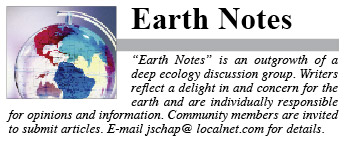Food production
By Ronald J. Fryer
I can accept that I am one of almost seven billion humans descended from someone in Tanzania’s Great Rift Valley in East Africa.
 Some millions of years ago after our species diverged from the other great apes we were able to evolve a bigger, more effective brain, walk on two feet, and develop the use of two hands. Sometime between 80,000 and 50,000 years ago something significant happened to the human population. There is little evidence of humans anywhere, including Africa. The human population may have averaged no more than a mere two thousand people around 70,000 years ago. Then there was an inflection point and the human population started growing and spread to every continent increasing to a few million hunter-gatherers.
Some millions of years ago after our species diverged from the other great apes we were able to evolve a bigger, more effective brain, walk on two feet, and develop the use of two hands. Sometime between 80,000 and 50,000 years ago something significant happened to the human population. There is little evidence of humans anywhere, including Africa. The human population may have averaged no more than a mere two thousand people around 70,000 years ago. Then there was an inflection point and the human population started growing and spread to every continent increasing to a few million hunter-gatherers.
At 10,000 years ago something really momentous happened. We see another change with a massive acceleration in the rate of population growth. The Big Bang took us from a few million to over six billion, almost seven billion, and we absolutely dominate the world stage of mammals. We developed “food production.†With the onset of the Industrial Revolution iron and steel became a major focus, first for the English, then on the continent. In the second Industrial Revolution late in the 19th century, organic chemistry was developed with Germany attaining hegemony by far with synthetic fertilizer and new explosive material.
A few years ago, I found a best seller, Guns, Germs, and Steel written by Jared Diamond that explains in some detail how over an extended time period especially in the Fertile Crescent humans were able to domesticate plants and animals they could farm and pasture, respectively, harvesting crops and meat. He then describes with some detail the many inventions that resulted such as writing, technology, government, and religion. Diamond goes on to use these ideas in historical Australia and New Guinea, East Asia and China, the expansion of Austronesia, and Africa. Many of these locations and dates are new to most of us. Even his comparison of Eurasia and the Americas brings a new approach for most of us as our knowledge is current and topical or from our grammar school days and old.
I had just about forgotten about Guns, Germs, and Steel until a favorable review of a new book, Pandora’s Seed: The Unforeseen Cost of Civilization by Spencer Wells, motivated me to buy the book. He had written another book, The Journey of Man, which I was able to get through the Bridgton Library from the interlibrary lending system. Wells is a geneticist and anthropologist working on population genetics. He uses the latest DNA technology to establish how humans left Africa and populated the world. This brought me into molecular biology that has become the big new science. Just a peek at its wide range of new uses, especially for managing and curing diseases is worth the purchase and a close read.

